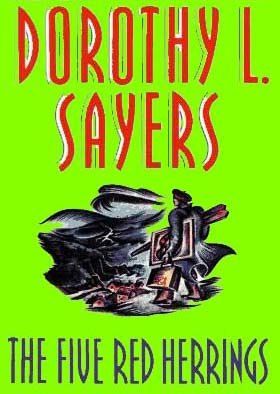
I read my first detective novel at the age of ten or eleven. It was Dorothy L Sayers' Five Red Herrings, featuring Lord Peter Wimsey and set in the Scottish hills of Galloway, and started a love affair with the genre that continues. I went straight onto Sherlock Holmes and still revisit his adventures, as well as being passionately interested in "new" cases, for example as collected in The Mammoth Book of New Sherlock Holmes Adventures.
My Mum liked w
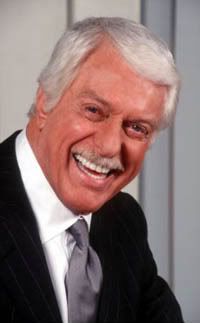 hat she called "nice" murders, for example TV adaptations of Agatha Christie's Hercules Poirot or Miss Marples novels, or as investigated by US tecs Jessica Fletcher (Murder She Wrote - based on the books by Donald Bain), or Dr Mark Sloan (Diagnosis Murder). Maxima also prefers more light than darkness, and likes M.C. Beaton's Agatha Raisin and Martha Grimes' Richard Jury; she's currently enjoying Alexander McCall Smith's Botswana-based series The No. 1 Ladies' Detective Agency.
hat she called "nice" murders, for example TV adaptations of Agatha Christie's Hercules Poirot or Miss Marples novels, or as investigated by US tecs Jessica Fletcher (Murder She Wrote - based on the books by Donald Bain), or Dr Mark Sloan (Diagnosis Murder). Maxima also prefers more light than darkness, and likes M.C. Beaton's Agatha Raisin and Martha Grimes' Richard Jury; she's currently enjoying Alexander McCall Smith's Botswana-based series The No. 1 Ladies' Detective Agency.Their tastes are a little saccharine for me, but they have a point: murder is never "nice" or anything near to it, but the point of murder fiction is similar to that of horror - to let us approach a dangerous situation from the safety of the distance between oneself and a book, radio, TV, cinema or any of the many platforms from which fiction can be presented. And, like h
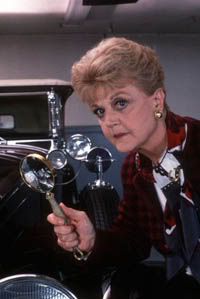 orror stories, detective fiction is mainly composed of morality tales, detailing the consequences of our stepping over lines that shouldn't be crossed for very good reasons; essentially worked examples illustrating the Ten Commandments.
orror stories, detective fiction is mainly composed of morality tales, detailing the consequences of our stepping over lines that shouldn't be crossed for very good reasons; essentially worked examples illustrating the Ten Commandments.Most examples of the genre proceed upon such similar lines that in 1929 English Catholic theologian and writer Mgr Ronald Knox wrote a "ten commandments of detective fiction", one of which stated that "no Chinaman must feature in the story", a dig at Sax Rohmer's Fu Manchu character. I wonder if the British UK series "The Chinese Detective", starring David Yip as Detective Sergeant John Ho, was a knowing wink at this?
Although a fan of televised police procedurals like Juliet Bravo, Softly Softly and, of course, Z-Cars, I've never been a big adherent of the written version until Inspector Morse proved a welcome exception. When Colin Dexter decided that Oxford had been saturated with Wagner-tinged murders and called Morse to Holmes's bosom I was lost - until I met Detective Chief Insector Alan Banks, subject of an award-winning series of novels created by Peter Robinson in 1987.
My first
 Banks novel was 2001's Aftermath, which turns the traditional detective fiction format on its head: it starts with the accidental solving of a series of missing persons cases, and proceeds to detail the grim aftermath of this discovery and of the attrition of police work in general upon Banks, his team and the people around them. It's probably Robisnon's darkest book and, like many works which explore our shadows, his most profound. He himself found it difficult to write because of the echoes of the horrific activities of Fred and Rosemary West, and of those of Paul Bernardo and Karla Homolka in Canada, which Robinson has called home since 1974.
Banks novel was 2001's Aftermath, which turns the traditional detective fiction format on its head: it starts with the accidental solving of a series of missing persons cases, and proceeds to detail the grim aftermath of this discovery and of the attrition of police work in general upon Banks, his team and the people around them. It's probably Robisnon's darkest book and, like many works which explore our shadows, his most profound. He himself found it difficult to write because of the echoes of the horrific activities of Fred and Rosemary West, and of those of Paul Bernardo and Karla Homolka in Canada, which Robinson has called home since 1974.Robinson comments himself that Aftermath "isn't a comfortable book; it’s a book that involves and challenges the reader" - and this, I think, is the point of great fiction: it takes you out of yourself and into somebody else's world in such a way that you find you've been looking into a mirror, a process which can be as uncomfortable as it is enlightening.
More than any genre, I think, in detective fiction the mirror is also societal - in The Man with the Twisted Lip, Arthur Conan Doyle presents an environment reflective of the burgeoning drug-use of the times as opium was on the point of passing the baton to heroin:
She had the surest information that of late [her husband] had, when the fit was on him, made use of an opium den in the farthest east of the City. Hitherto his orgies had always been confined to one day, and he had come back, twitching and shattered, in the evening. But now the spell had been upon him eight-and-forty hours, and he lay there, doubtless among the dregs of the docks, breathing in the poison or sleeping off the effects.Banks' main police characters fall in and out of love, like each other a little less some days than others, and on occasion make a right royal mess of their private lives. On the oth
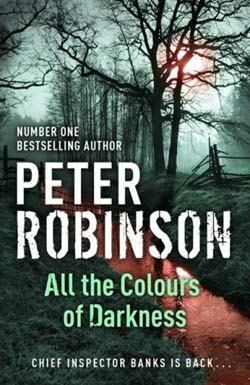 er hand, he presents us with Jamaican team-member Winsome Jackman, whose good moral sense is often a godsend to her colleagues, and the enigmatic but brilliant Scene-of-Crime Officer Stefan Nowak.
er hand, he presents us with Jamaican team-member Winsome Jackman, whose good moral sense is often a godsend to her colleagues, and the enigmatic but brilliant Scene-of-Crime Officer Stefan Nowak.Robinson's 2008 title Friend of the Devil deals with further consequences of events that were uncovered in Aftermath, reflecting how chains of cause and effect can roll tsunami-like through the years. In his present work, All the Colours of Darkness, which I'm reading right now, references to Shakespeare's Othello and Harry Potter are just two of the cultural threads which run through the plot - as well as the music: while Morse was purely a classical aficionado, Banks' tastes include John Coltrane, Madeleine Peyroux and Maria Muldaur as well.
And when I sadly put All the Colours of Darkness down for the last time, I can pick up a dog-eared book I found while doing a shift in XV, the Draughty Old Fen's charity shop: Five Red Herrings. Perfect.
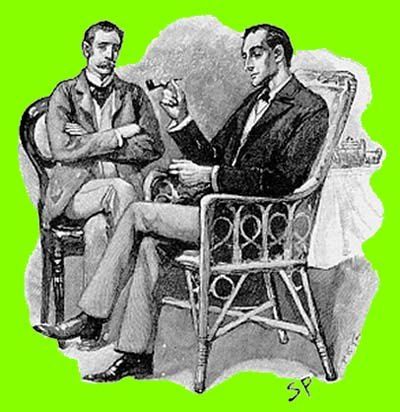











Nice when we can find them in the secondhand shops!
ReplyDeleteI started on Arthur Conan Doyle, gave the genre a rest for a decade or so, began again on Poirot (the TV series), then gave it another rest. Chesterton got me back onto mysteries with the Fr. Brown series - I bought the lot of them. Now I've discovered a new favorite: Josephine Tey.
Will check out some of yours!
I must admit that I keep going back to Sherlock Holmes - Sir Arthur Conan Doyle was the king, methinks.
ReplyDeleteI adored Fr Brown in books, but we had a TV series over here and I thought they didn't quite capture the intelligence of GK Chesterton.
I've heard of Josephine Tey before - did she write "Child of Time"? But I'll definitely investigate her!
Never saw the Fr Brown TV series. The books are wonderful. My 13-year-old loves his writing, too. Off the topic of mysteries, I'm also hoping for a copy of Tales of the Long Bow, and a few others as well.
ReplyDeleteI've not read Daughter of Time. I especially like the books featuring a police detective named Alan. (I forget the last name.) The Singing Sands is a favorite. The Franchise Affair was also enjoyable.
"The Franchise Affair?" I'v got that hanging about somewhere - I always bring back more books from the village charity shop than I can read! Is that by Josephine Tay?
ReplyDeleteI tried to read "Lord of the Rings" three times because everybody at school said it was so cool, but each time I only made it to the middle of the second book, at furthest, I find Tolkein deeper than sometimes I want to go.
A book that's sort of followed me round is "Dear and Glorious Physician", which is about St Luke, blending Gosped, traditions and fictional narrative.
What other books do you like?
I finished Lord of the Rings in 1980, but wasn't enthralled as Linda's family and others. My 13-yr-old is reading it now - she says Tolkien's a genius. (Probably right.) I read Dear & Glorious Physician, and liked the first 90% of the book very much indeed, then got annoyed as departures from the New Testament ("artistic license"?) seemed less inspiring than the Gospels themselves.
ReplyDeleteNow I'm reading Jane Austen (just finished Sense & Sensibility, which I'd not read for at least 15 years). I also like novels of Wendell Berry (Port William series, especially), and some of his less-dark poetry. A friend of mine is much taken with his essays.
My wife likes Jane Austen, and also the many novels that have been written about her. I haven't heard of Wendell Berry - will investigate him too.
ReplyDeleteI have to say I liked all of Dear and Glorious Physician, but the bit I liked the most (and my Mum) was Caldwell's imagined interview with Our Lady at the end.
I'm reading Gordon Brown's biography of Scottish socialist politician James Maxton (who my Mum remembered), and I find it a bit depressing, because socialism is a way of life I can't reconcile myself to - but there are points where Maxton's innate goodness come through, for instance the righteous anger that burned when he saw the suffering of children in Glasgow in the 20's-30's. I hink he made a more convincing politician than Brown.
Also have started PD James' "Children of Men", which I'm finding much more intelligent than the film. (Do you ever read more than one book at a time? It's an old vice of mine!) I've gotten Ayn Rand's Atlas Shrugged from Amazon, but it's a doorstop of a book, it's goingto be a long read.
You've finished Lord of the Rings? All I can say is, big respect!
Sorry, I hated Atlas Shrugged. Never picked up an Ayn Rand book again. Re biographies, I've read at least half a dozen on Virginia Woolf (trying to get perspective); also enjoyed Lytton Strachey's Queen Victoria. Read Chesterton's autobiography - that's one for "perspective". Bio of Louisa May Alcott was interesting, too. (Wonder if I liked it better than her books?) The others I can't remember so well.
ReplyDeleteWendell Berry writes about farming communities and the value of small villages. It's quite captivating.
To answer your question, at times I've been actively reading as many as 6 books at once. I'm trying not to do that lately. The library fines mount upwards.
ReplyDeleteOh, and I like Chekhov's short stories very much, and Anna Karenina was a memorable read, and I like Monsignor Robert Hugh Benson's novels. Michael O'Brien's apocalyptic novels are very engaging, and I liked Louis de Wohl's The Spear, about the Roman centurion who pierced Christ's side with a lance. I could go on and on. Perhaps I'd better stop now!
I'm trying to remember if I read the Spear many years ago, but I think it might have been the Robe. I must bow before a more voracious literary intelligence than mine!
ReplyDeleteI've never read Chekhov - is he heavy?
Having been through several years of reading thrillers (in-between detective stories) I'm somewhat tired of the genre, unless it's very well written: and new thrillers with literary merit are hard to come by these days.
I must admit I've done the six-book thing myself, but I just can't sustain that anymore, I ended up not finishing the book. I suppose I read four - one non-fiction, then two or three fiction that I can flit between depending on my mood.
I guess my favourite novel ever is Tom Clancy's The Sum of all Fears, about which I posted a sad old blog here. It's a very dark book and so, I think, is more profound.
Our library was shut down as part of a cost-cutting exercise, but volunteers keep it open, and at the end of each month they sell books for about 50p (~70c).
I suppose I'd better stop now too!
Ouch! Shut the library down?!? Well, at least the library's used book sales are one of the best places to shop.
ReplyDeleteChekhov is rather in-between. Easy to read, but got some depth to him, albeit brooding at times. And, principally, he wrote short stories, which are easier to follow when one has a tired brain, as mine often is.
Also like (very much!) short stories of V.S. Pritchett, and Katherine Anne Porter (a Texan).
We are leaving shortly, to look at a convent which raises miniature horses. Have a great weekend!
If you read this when you get back, I hope you had a good weekend too!
ReplyDelete